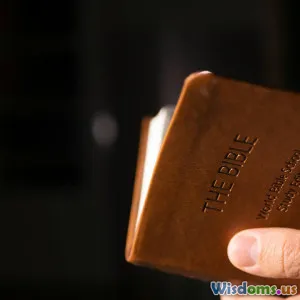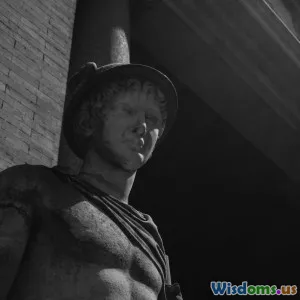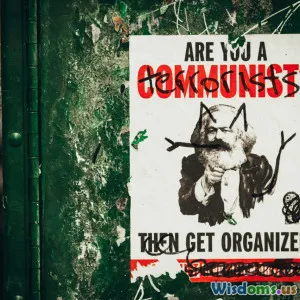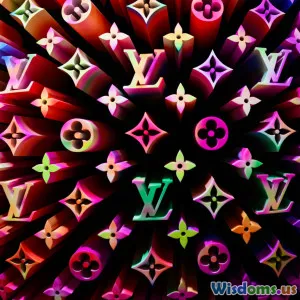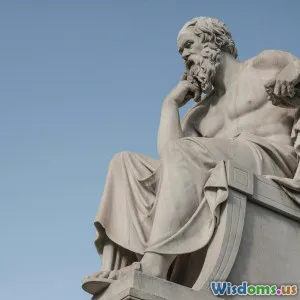
The Enigma of Esoteric Societies
7 min read Unravel the secrets behind esoteric societies, exploring their mystique, rituals, and influence through history. (0 Reviews)
The Enigma of Esoteric Societies
Throughout human history, societies and organizations dedicated to secret knowledge and hidden rituals have fueled imagination, suspicion, and intrigue. Known broadly as esoteric societies, these groups blend cryptic symbolism, arcane wisdom, and selective membership to craft identities that have captivated civilizations for centuries. Why do such groups persist? What secrets do they hold? And what influence have they unfolded across cultures and eras? This article peels back the veils to explore the profound enigma of esoteric societies.
Origins and Definitions: What Are Esoteric Societies?
At their core, esoteric societies are organizations that center around hidden knowledge not accessible or meant for the general public. The term "esoteric" itself means "intended for or likely to be understood by only a small number of people with specialized knowledge or interest." Examples range from ancient mystery schools like the Eleusinian Mysteries of Greece to modern lodges of Freemasonry or Theosophical societies.
Historically, the earliest forms can be traced to secretive religious cults and mystery schools of antiquity. These societies claimed access to spiritual truths and cosmic knowledge withheld from the uninitiated — often revealed through complex initiation rites, allegory, and symbolic language.
Subheading: Hallmarks of Esoteric Societies
Symbols and Rituals*: One defining feature is the use of symbolic language or rituals. The Freemasons, for example, employ architectural and biblical symbolism to denote personal and spiritual transformation. The ritual acts as both a teaching device and boundary marker.
Selective Membership and Hierarchy: Most esoteric groups employ hierarchies or degrees of initiation ensuring only deeply committed individuals gain exposure to inner knowledge.
Pursuit of Hidden or Ancient Wisdom: Many claim connections to lost civilizations (Atlantis, Lemuria) or ancient texts believed to contain universal truths.
The Mystique Through History
Esoteric societies have evolved but their consistent allure remains. During the Renaissance, the rediscovery of Hermeticism, Kabbalah, and alchemy led to revived interest in secret wisdom. Prominent figures such as Sir Isaac Newton and Giordano Bruno were influenced by such traditions, highlighting intersection between science, mysticism, and secrecy.
Example: The Rosicrucians
Emerging in early 17th-century Europe, the Rosicrucians claimed to hold mystical insights combining Christian mysticism, Hermetic and alchemical traditions. Though their actual tangible membership remains debated, their manifestos stirred intellectual and spiritual circles profoundly, inspiring literature, art, and later secret fraternities.
Influence on Modern Organizations
Today, many contemporary groups draw from these older traditions. The Theosophical Society, founded in 1875, blended Eastern and Western occult philosophies and inspired movements like the New Age. Freemasonry retains millions of members worldwide, emphasizing moral uprightness, fraternity, and personal development behind symbolic rituals.
Real-World Impact & Cultural Reflections
The long shadow of esoteric societies reaches beyond mystical interest—they have impacted politics, arts, and popular culture.
-
Politics: Claims of esoteric influences have been frequently levied against historical power centers. For example, conspiracy theories about Freemasons or the Illuminati impacting governance or economic systems continue to provoke debate.
-
Arts and Literature: From Dan Brown’s novels "The Da Vinci Code" to the surrealist expressions of the 20th century, themes of secret knowledge have enriched popular storytelling.
-
Psychology: Carl Jung analyzed alchemical symbolism to understand unconscious processes, underscoring the deep roots of esoteric thought in human self-reflection.
Demystifying Misconceptions
While popular culture often sensationalizes esoteric groups as sinister or omnipotent, many scholars emphasize their complexity and diversity. Esoteric societies can be viewed as vehicles of human quest for meaning and transcendence rather than simple conspiracy.
Their emphasis on secrecy often serves protective purposes, guarding sacred knowledge against misuse or dilution, much like intellectual traditions in indigenous cultures.
Conclusion: The Enduring Allure of the Hidden
Esoteric societies reflect a universal human fascination with the unseen and the unknown. Their symbolic rituals, hidden knowledge, and layers of mystery endure in the modern world because they address timeless questions of existence, purpose, and moral order.
Understanding these groups beyond myths and fears empowers us to appreciate the vibrant cultural and spiritual tapestries they have woven through history. Whether as guardians of ancient wisdom or inspirations to seekers, the enigma of esoteric societies remains an intriguing chapter in humanity’s collective story.
References & Further Reading
- Faivre, Antoine. Access to Western Esotericism.
- Hall, Manly P. The Secret Teachings of All Ages.
- Masonic World. "Freemasonry: Symbols and Meaning." 2020.
- Jung, Carl. The Psychology of the Transference.
As you delve deeper into these secret corridors of power and spirituality, remember the wisdom in their very design: some knowledge requires patience, respect, and inner growth to be fully understood.
Rate the Post
User Reviews
Popular Posts














